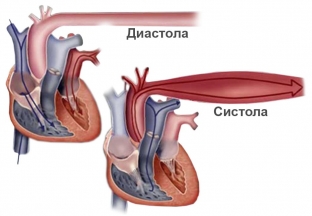When diagnosed with persistent arterial hypertension, which requires treatment with drugs, the doctor prescribes lifelong therapy. There are several types of drugs for the treatment of hypertension. These are first and second line drugs. Second-line drugs are rarely prescribed due to the lack of evidence to reduce the risk of developing cardiovascular disease and mortality in the presence of arterial hypertension. Let's take a closer look at the features and benefits of first-line drugs.
First-line drugs for the treatment of hypertension
First-line drugs for the treatment of hypertension are given as soon as the diagnosis is established and the appropriateness of medical treatment of hypertension has been determined. These include diuretics, calcium antagonists, ACE inhibitors, angiotensin II blockers, and beta blockers. Diuretics deserve special attention.
It has been proven that it is thiazide diuretics that effectively prevent the development of cardio – vascular complications. The main conditions for which diuretics are more effective:
- patient's advanced age;
- presence of isolated systolic hypertension in the elderly;
- fluid retention;
- signs of hypervolemia (edema and pastosity);
- concomitant heart or kidney failure;
- osteoporosis.

Diuretics are prescribed in small doses, as their increase leads to side effects. To prevent potassium loss, it is recommended that diuretics be given with non-potassium-removing drugs or aldosterone antagonists, unless diuretics are given in small doses or in combination with ACE. Loop diuretics are prescribed with drugs for the treatment of hypertension and renal failure, which is accompanied by an increase in creatinine up to 220 µmol / l, as well as heart failure. The main negative effects of diuretics are the development of hypokalemia and a poor effect on the metabolism of glucose, purines and lipids.
When are calcium antagonists used to treat hypertension?
Calcium antagonists are the first line of treatment for hypertension. They are divided into 3 groups - phenylalkylamines (halopamil, verapamil, benzothiazepine derivatives (dilthiazem), and dihydropyridines. Drugs in this group are prescribed to middle-aged and elderly patients with the following conditions:
- isolated systolic hypertension;
- atherosclerosis of the carotid arteries;
- stable angina;
- Hypertrophic changes in the left ventricle;
- Supraventricular tachycardia and extrasystoles;
- Peripheral circulatory disorders.
Only drugs for the treatment of hypertension that have a long duration of action should be prescribed, since short-term drugs can have a negative effect on the course of hypertension. If long-acting drugs are not available for some reason, short-acting dihydroperidine drugs in combination with beta-blockers can be prescribed for some time. Amlodipine, lercaidipine and lacidipine have the longest duration of action.
Specific features of drugs for the treatment of hypertension of the dihydroperidine series:
- have a more pronounced vasodilating effect;
- may cause tachycardia, flushing, and swelling in the legs.
The advantage of calcium antagonists is that they do not affect the level of glucose and lipid metabolism.
Preparations for the treatment of moderate to mild hypertension
For the treatment of mild to moderate hypertension, angiotensin II receptor blockers and beta-blockers are prescribed. Angiotensin receptor blockers are most effective in such cases: the presence of concomitant heart failure, the presence of albuminuria, chronic kidney disease, left ventricular hypertrophy, atrial fibrillation. The action of these drugs for the treatment of hypertension is similar to that of ACE inhibitors. A feature and advantage of this group of drugs is the absence of adverse reactions and the effectiveness of a single dose. The effect is enhanced when used with diuretics.
Beta-blockers reduce the incidence of coronary artery disease and reduce mortality from cardiovascular disease. Beta-blockers are effective and are prescribed to such patients: young or middle age, signs of hypersympathicotomy, heart failure, concomitant coronary heart disease, extrasystole, hyperthyroidism, migraine and glaucoma. Blockers reduce blood pressure by reducing cardiac output and inhibiting renin secretion.
What drugs are used to treat severe hypertension?
ACE inhibitors are used to treat severe and mild hypertension. They are effective for patients with high renin levels and for those taking diuretics that increase renin levels. When choosing drugs for the treatment of hypertension, ACE inhibitors should be preferred in case of diabetes mellitus, heart failure and left ventricular hypertrophy.
Treatment begins with minimal doses. The benefits of such drugs for the treatment of hypertension – they reduce mortality after acute myocardial infarction, reduce proteinuria in patients with hypertension. Disadvantages – can cause renal failure in patients with bilateral renal artery stenosis and provoke a dry cough.
When prescribing drugs for the treatment of hypertension, the doctor must make sure that there are no contraindications, and that this group of drugs is most suitable for treating a particular patient. The effectiveness of drug therapy for hypertension is evaluated over several weeks.






Add a comment